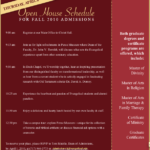
Yes, this is “Something Christians Like” in Jon Acuff style… you can’t make stuff like this up.
Besides the Lamb cake, (Lamb of God or maybe spring lamb… the jury is still out. See previous post.) my sis also brought over a Crucifix Pastry. She said a local Catholic-owned bakery in Mt. Lebanon (PA) makes super, delicious products, including religious themed items.
(To be honest, I found it a bit dry. This was remedied by dunking it in good coffee, and soothing myself with chocolate.)
I can’t help but wonder, if Jesus Christ had died by stoning, would it have looked like a pile of stones? Or, if the electric chair had been around…. oh never mind.
What do you think about religious baked goods?
1. No way-Not for me!
2. Not sure.
3. Delicious!
4. Other ___________ (explain)










